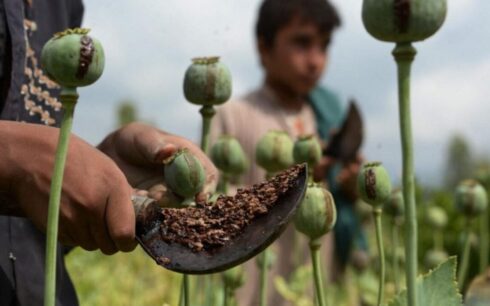Fadi al-Zant, a six-year-old in northern Gaza, is acutely malnourished, his ribs protruding under his skin and his eyes sunken as he lies in bed at Kamal Adwan Hospital. The region faces the imminent threat of famine.
Previously healthy and vibrant, Fadi’s condition has deteriorated to the point where his legs can no longer support him. His mother, Shimaa al-Zant, says that Fadi, who suffers from cystic fibrosis, can no longer access the medication or the variety of foods he needs due to the conflict.
“His condition is deteriorating. He’s becoming weaker and losing his ability to perform basic actions,” she explained in a video interview. “He can no longer stand on his own. As soon as I help him up, he collapses.”
More than five months after Israel launched ground and air operations in response to a Hamas attack on Oct. 7, Gaza is experiencing severe shortages of food, medicine, and clean water, according to doctors and aid organizations. Kamal Adwan Hospital, where Fadi is being treated, has seen most of the 27 children who, the Hamas-run Gaza Health Ministry reports, have died from malnutrition and dehydration recently. Additional fatalities have occurred at Gaza City’s al-Shifa Hospital and in Rafah, a city in southern Gaza where over 1 million Palestinians have sought shelter from the conflict.
During a visit to the al-Awda health center in Rafah, Reuters reporters observed ten severely malnourished children. The news agency could not independently verify the ministry’s death toll.
The Integrated Food Security Phase Classification (IPC), a global hunger watchdog, has warned that famine could strike northern Gaza, where 300,000 people are besieged by conflict, as early as May. The IPC predicts “extremely critical levels of acute malnutrition and mortality” for a significant portion of the population in the north.
Israel’s COGAT, responsible for coordinating aid transfers to Gaza, did not comment on the reported deaths but stated that Israel does not restrict the volume of aid entering the region. Following the IPC report, Israeli government spokesperson Eylon Levy criticized the assessment as outdated on X, noting an increase in food truck entries in March and efforts to enhance delivery to northern Gaza.
USAID Administrator Samantha Power described the IPC’s findings as “a horrific milestone” and urged Israel to expand land access and fully operationalize border crossings.
U.N. aid agencies emphasize that significant challenges in delivering aid to northern Gaza can only be addressed through a ceasefire and the reopening of border crossings closed by Israel since Oct. 7.





